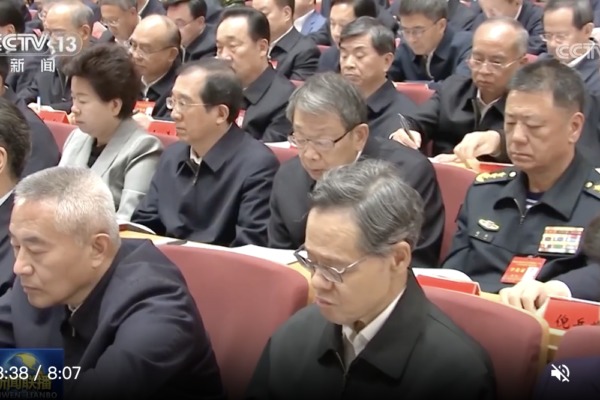Caption: The CCP is the eastern branch of the Comintern. (Dajiyuan illustration)
[People News] With Trump winning the U.S. election and pledging to bar Chinese products from the U.S. market, China’s economy, already on the brink of collapse, faces further severe damage. The CCP, panicked by this prospect, is planning to strain relations between the U.S. and its allies to increase pressure on the U.S. and minimize its own economic losses.
According to Radio France Internationale, in recent months, the CCP has waived visa requirements for travelers from around 20 countries, including Australia, New Zealand, Denmark, Finland, and South Korea, without demanding immediate reciprocity from these countries. During recent discussions with Western business leaders, Chinese Vice Premier He Lifeng indicated that Beijing is considering the possibility of "actively" reducing tariffs on goods from European and Asian countries to boost foreign investment and trade. This may apply to products like electronics, communication equipment, seafood, and agricultural products, with the targeted countries depending on Beijing’s interests.
The Wall Street Journal reports that Beijing hopes to leverage Europe and Asia’s concerns about Trump to apply greater pressure on the U.S. while attempting to divide its allies.
Trump pledged during his campaign to impose tariffs as high as 60% on Chinese imports, which threatens the economic growth model advocated by CCP leader Xi Jinping. This model focuses on strengthening manufacturing and lifting China’s economy out of its downturn through exports.
Sources close to Beijing’s leadership reveal that to mitigate the impact on China’s already struggling economy, Xi Jinping and top CCP officials are considering measures such as lowering tariffs, offering visa waivers, increasing Chinese investment, and other incentives for U.S. allies in Europe and Asia. These efforts aim to win over America’s traditional partners, buying time and gaining leverage in the intensifying competition with the U.S.
According to the report, insiders say that with the potential closure of the U.S. market to Chinese products, China urgently needs to diversify its markets and reduce its reliance on the U.S. China has made inroads in developing countries, but further expansion into European or Asian markets could have a more substantial impact.
The report notes that under Xi Jinping’s manufacturing-centered agenda, exports have become one of the few recent bright spots in China’s economy. This means that if Trump fulfills his tariff commitments, the impact on China’s economy could be much more significant than during his first term.
According to Larry Hu, an economist at Macquarie Group, if the U.S. raises tariffs to 60%, it could reduce China’s economic growth by two percentage points within 12 months of implementation, potentially ending China’s current growth model driven primarily by exports and manufacturing.
However, Abigael Vasselier, head of the Foreign Relations Program at the Mercator Institute for China Studies in Germany, suggests that any commitment by the CCP to increase investment in the EU could create rifts among EU member states. The EU hopes the CCP will take effective measures to curb the influx of low-cost products into Europe and cease its support for Russia, but “China currently lacks the capacity to respond to these demands.”











News magazine bootstrap themes!
I like this themes, fast loading and look profesional
Thank you Carlos!
You're welcome!
Please support me with give positive rating!
Yes Sure!